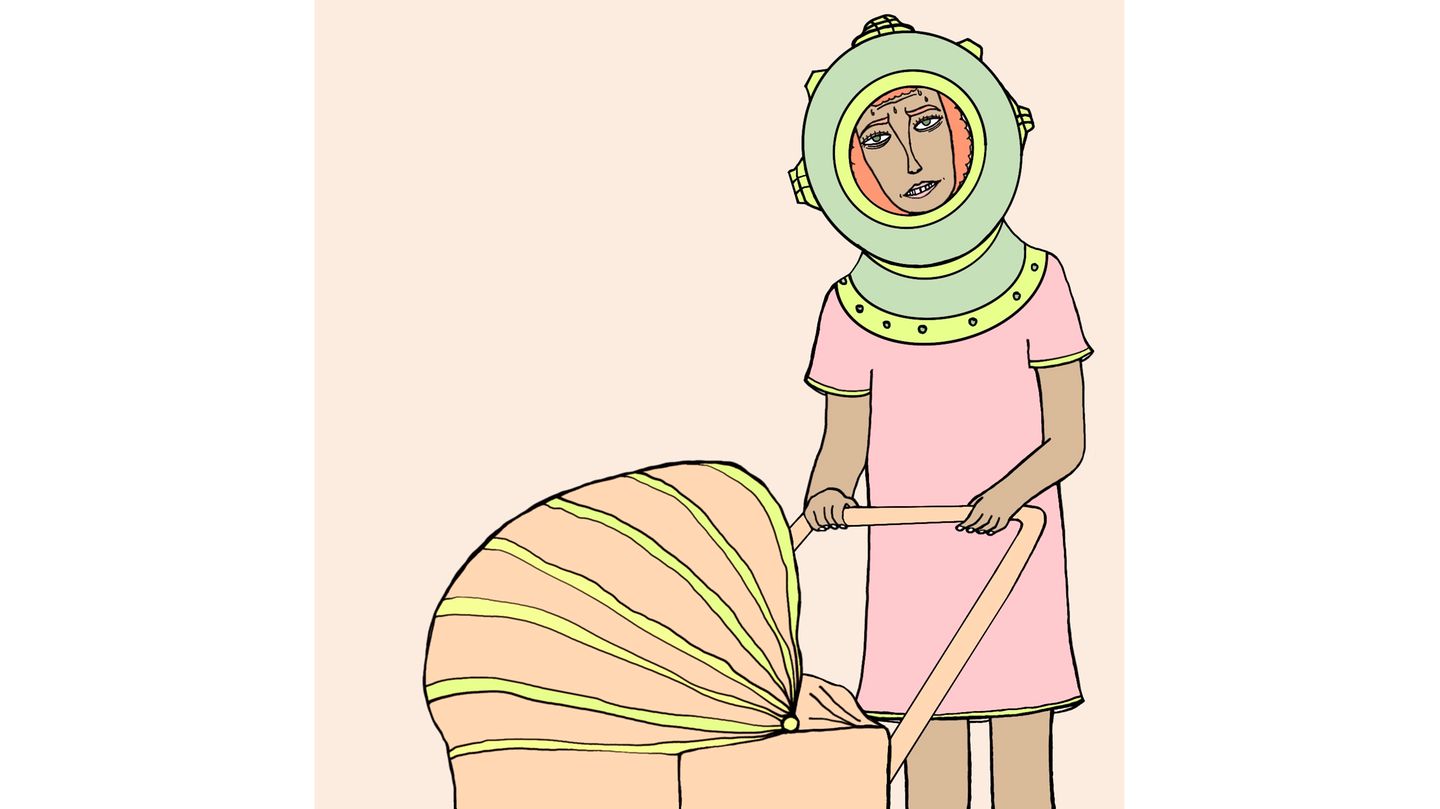
Rafaela Marreiros’ illustrations depict the challenges of motherhood with a touch of surrealism and she loves to explore themes such as femininity, beauty standards and gender identity in her work. The collaboration with Wai from “Mama-Burnout.berlin” fits well.
Wai has a 2.5 year old son and knows the difficult times many (expecting) mothers go through. He says that “mothers are exposed to a special form of stress and tension.” As a burnout coach for mothers, he wants to do his part to change that. In the interview he talks about the symptoms of burnout and the recovery path.
PARENTS: Why are you opposed? Exhausted mom strong?
Wai: The idea, or rather the need, to accompany and support mothers came to me after the birth of my son, which was traumatic for me. He made me realize how little guidance and support there is for mothers after giving birth. I realized how little I was informed about this beforehand. How vulnerable you feel in those first few weeks after giving birth, but also how “normal” is.
I grew up with my mother and sister. My mother was a single mother and worked. Looking back, I have great respect for this achievement of being solely responsible for two children and working full time. At that time I was very aware of my mother’s excessive demands and this took a toll on me. This is probably one of the reasons why it is so important for me today to stay mentally healthy and help other women take care of themselves. That’s why I started my business with “mama-burnout.berlin”.
What are the typical causes of burnout in mothers?
The image of the altruistic mother who puts her children and family before herself is now outdated. Yet this image resonates with many of us women. This can become a problem. Especially when we devalue ourselves because the expected feelings do not arise immediately after birth, in the first year of the child’s life or later. This often puts mothers under great stress, which can already form the basis for burnout.
Many women also report experiences of violence during childbirth or have found childbirth very stressful or even traumatic. If these women do not receive professional support, postnatal depression or burnout may develop as a result of these events. Additionally, women often shoulder the majority of care work, on top of returning to work or other challenges, which is a lot to balance.
What symptoms are warning signs?
It is important to pay attention to warning signs such as the inability to switch off, insomnia, restlessness, states of panic, increased irritability, chronic fatigue, muscle tension, indifference, intrusive thoughts and internal devaluation.
These symptoms don’t appear overnight; it is often a gradual process that can take years. Symptoms often occur in conjunction with each other. The earlier women receive support, the better it is possible to prevent or even prevent burnout. This is a clinical picture that should not be underestimated because ultimately it affects the entire family.
How can we support each other, what advice do you have for mums?
First of all, it is so important to stop judging or even shaming ourselves for any feelings, emotions and thoughts. Everything that appears is important and indicative of our needs. In most cases, a connection to the here and now and an understanding counterpart is needed. This could be your partner, your family, a friend, your midwife or even outside help.
Through our children we are directly confronted with many ambivalent feelings. Old coping strategies may no longer work. This is all part of becoming a parent. As a mother, every day you can settle into your new daily life with your baby a little more. Don’t be afraid to get the best support you can in this incredible transition, from becoming a mother to being a mother, so that you can find your individual path to motherhood.
I often advise moms to connect with other moms. groups of small children, Infant massage– Courses or clubs like “Light and Shadow” offer a safe space where mothers can talk openly about fears and worries. If you take care of yourself, your children will also be able to learn from you the importance of taking care of themselves.
Thanks for the interview.




